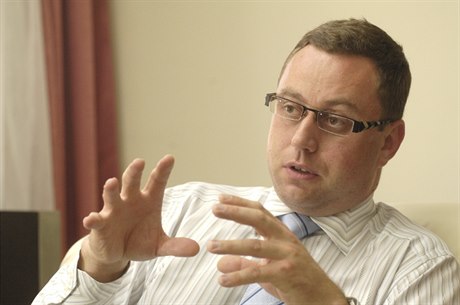The chief of the Supreme Prosecution Service (NSZ), Pavel Zeman, wants to resuscitate floundering anti-corruption efforts by creating a special team of elite prosecutors. In an interview with Czech Position, Zeman says the initiative is one of several measures he intends to introduce to make the service more effective and restore public confident in the organ.
Zeman told Czech Position that according to his plan the new anti-corruption unit will be headed by one of his deputies. “But he would have special status. While normally I can issue orders and set tasks for deputies, in this case there would be a solid wall between us: I wouldn’t be able to give him any orders, and he would have very limited duties to report to me,” Zeman said.
The new unit would operate nationwide and by default lead investigations into all corruption-related crimes, such as offering and accepting bribes, indirect payment of bribes and related crimes committed by civil servants and public administration employees.
Roughly 10 to 15 percent of all public prosecutors would be transferred to Zeman’s proposed new unit; therefore, it would certainly not have sufficient manpower capacity to investigate all suspected cases of corruption in the country. Zeman says that this would be resolved by assigning less-severe cases to the appropriate regional prosecution services.
Bill being drafted
Legislation is required to enable the creation of the new anti-corruption unit of prosecutors and work on drafting the appropriate ‘When you discuss the plan with people from the supreme, regional and district divisions of the prosecution service, you get completely different feedback.’law has only just begun. “We’ve just completed the concept, which I’ve seen — and I like it. In June, we want to present it to colleagues within the state prosecution for them to give their opinions. When you discuss the plan with people from the supreme [national level], regional and district divisions of the prosecution service, you get completely different feedback,” Zeman told Czech Position. The next task is to write the actual draft of the law.
So when could the bill be put to parliament? Zeman says it will be ready in the autumn at the earliest but probably later. “I say, with a little exaggeration, that I won’t mind if the drafting of the law is protracted by several months, but I’m speaking about months, not years. If the law is to set a new structure for the prosecution service and the relations within its constitution, then we’ll prepare something that with a little ambition could last 20 years. The quality of the law is important.”
Thus it is difficult to predict when the bill could be submitted to the lower house of parliament (the Chamber of Deputies).
Zeman says that ideally the structure of the police should be adjusted to accommodate for the new elite team of prosecutors and ensure effective cooperation. “It probably wouldn’t work if the elite team in the NSZ were to collaborate with the individual district police departments in the country,” Zeman says, adding that there should be no rivalry between police and prosecutors. He explains that in criminal proceedings it is the prosecutors who call the shots — because they have powers to issue orders to the police.
Of course his plan is not to everyone’s liking. Czech Position has obtained an “analytical” report prepared anonymously this spring — most probably for Prime Minister Petr Nečas (Civic Democrats, ODS). The author of the report is most likely a high-ranking official in the prosecution service who considers the plan for the new elite anti-corruption prosecution unit to be a part of a scheme by a group of people around Justice Minister Jiří Pospíšil (ODS) and Zeman to “to fill key posts in the judiciary for the long term with people who in the event of a crisis will be loyal only to minister Pospíšil.”
This document illustrates just how polarized relations are within the prosecution service.




